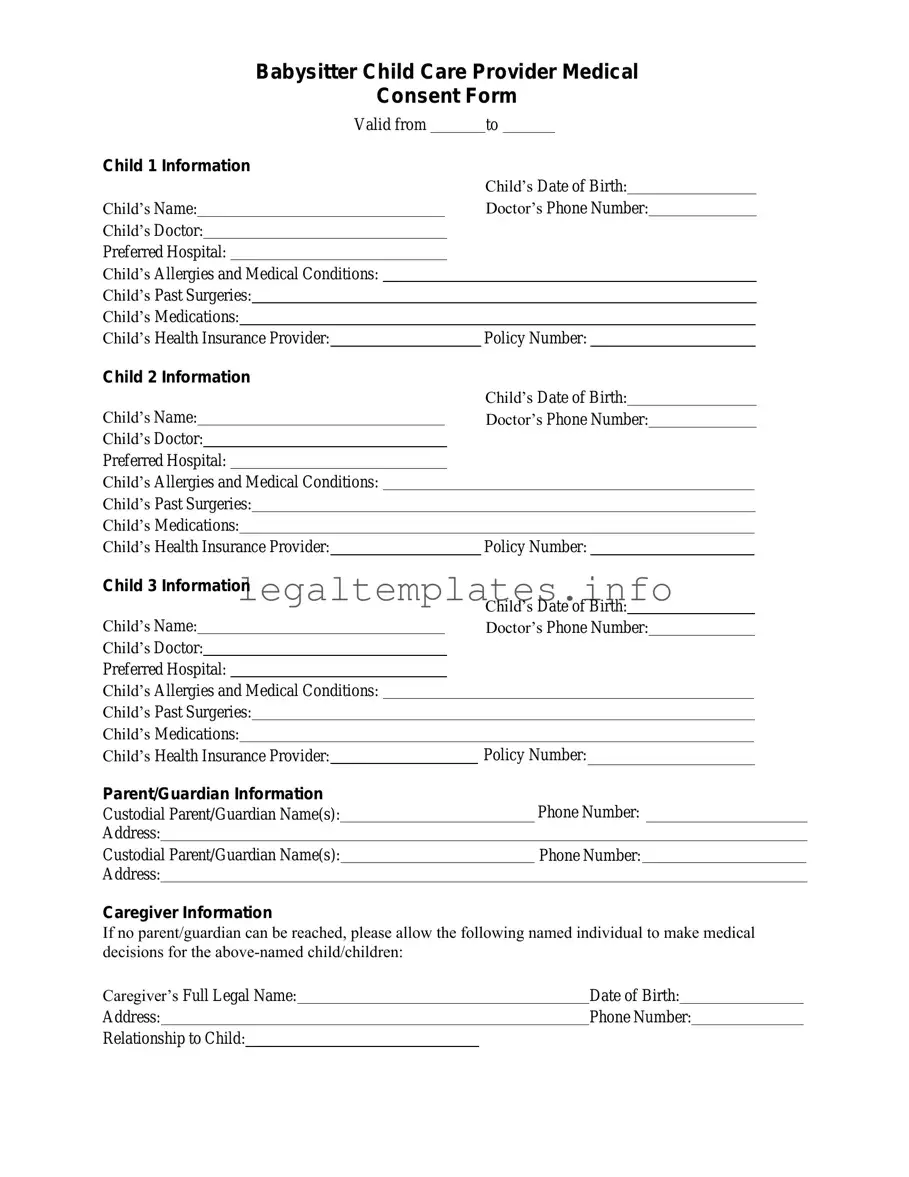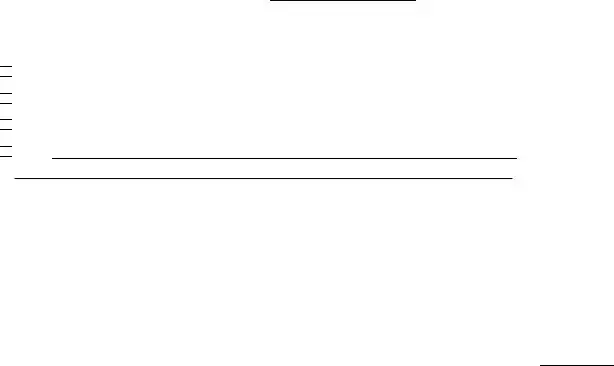What is a Medical Consent Babysitter Form?
This is a document that parents or guardians use to grant authority to a babysitter or caregiver to make medical decisions on behalf of their children in the event of an emergency. The form outlines essential information about the child, including health details, and specifies the types of medical decisions the caregiver is authorized to make.
Why is it important to have a Medical Consent Form for a babysitter?
Having a Medical Consent Form is crucial because it ensures that your child can receive medical attention promptly in your absence. It clarifies to healthcare providers that the caregiver has your permission to make urgent medical decisions, avoiding potential delays in treatment.
What information is included in this form?
The form includes detailed information about the child, such as name, date of birth, doctor's contact information, allergies, medications, and health insurance details. It also contains the parent/guardian and caregiver's information, including their names, addresses, and phone numbers, along with the specific medical decisions the caregiver is authorized to make.
How long is the Medical Consent Form valid?
The validity period of the form is defined by the dates mentioned at the beginning. It clearly states the start and end dates between which the consent remains effective. This period should be carefully considered and specified by the parent or guardian at the time of completion.
Can I limit the types of medical decisions the babysitter is allowed to make?
Yes. The form includes checkboxes and a section for "Other" instructions where you can specify which medical decisions you authorize the caregiver to make. It allows for tailored permissions suited to the child’s needs and the parent’s comfort level.
What should be done if a child has specific medical conditions or needs?
Children with specific medical conditions or needs should have these details clearly outlined in the form. This includes listing allergies, any medications the child is taking, past surgeries, and any other essential health-related information that medical personnel should be aware of in an emergency.
Is it necessary to have the form notarized or witnessed?
While not always required, having the form signed in the presence of a witness or notarized adds a layer of authenticity and can help ensure it is taken seriously by medical personnel. It is advisable to check with local regulations or consult a legal advisor to determine the necessity of this step in your area.
What happens if the form is not available during an emergency?
If the form is not available, medical providers may hesitate or be unable to perform certain treatments without express consent from a parent or legal guardian. This highlights the importance of ensuring the babysitter or caregiver has access to the form whenever they are responsible for the child.
How can parents revoke or modify consent?
Parents can revoke or modify consent at any time by creating a new document that outlines the changes in permissions or formally revoking the previous consent in writing. It is crucial to communicate any changes to all relevant parties, including the caregiver and healthcare providers previously given the document.




 Sharing personal information about my child/children with emergency personnel.
Sharing personal information about my child/children with emergency personnel. 
 Authorizing use of
Authorizing use of 
 Authorizing use of an ambulance for transport.
Authorizing use of an ambulance for transport. 
 Other:
Other: